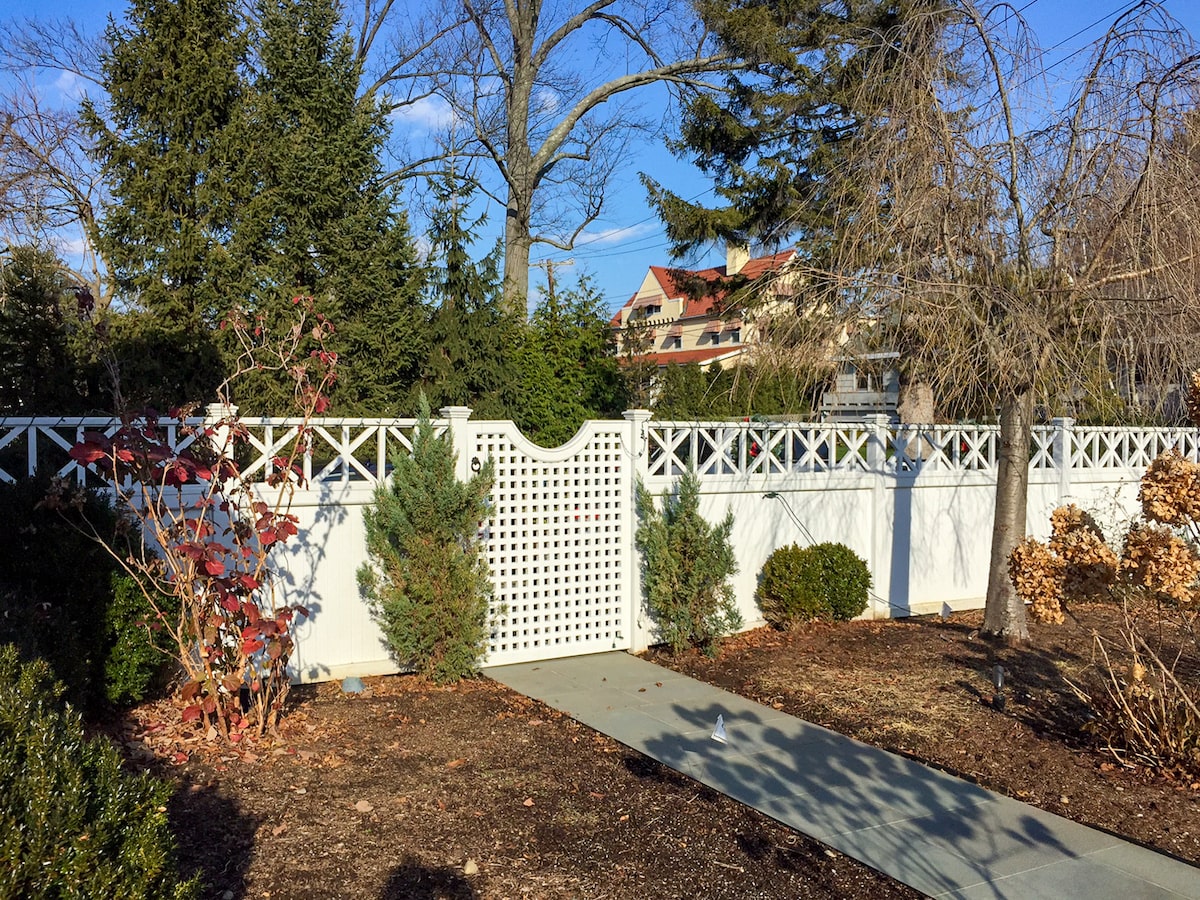All Categories
Featured

When intending to set up a fencing around your residential property, one of the very first actions is comprehending the permitting needs in your location. Below's what you require to understand regarding obtaining the needed licenses for your fencing installment.
Why Do You Required a Permit for a Fencing? An authorization is typically needed for fence setups to make certain conformity with neighborhood building regulations, zoning laws, and safety laws. Allowing helps local authorities preserve harmony in area visual appeals, security, and ecological considerations. It additionally ensures that the fencing does not interfere with utility lines or public rooms, which it sticks to height and border limitations.

Typical Permits Needed for Fence Installation. Building Permit. A lot of areas require a structure authorization for fencing setup, particularly if the fencing surpasses a particular elevation (usually over 6 feet) or is made from non-standard products. This authorization guarantees that your fencing adheres to neighborhood building regulations. In some locations, the building department will certainly examine the site to make sure that the fencing meets security and architectural requirements.
Zoning Authorization. Zoning authorizations are developed to make sure that your fence sticks to regional zoning laws, consisting of problems from property lines, easements, and rights-of-way. Zoning legislations vary from city to city, and in many cases, your fence might need to be held up a certain variety of feet from the pathway or road. If your fence is in a historic district or various other specifically marked locations., a zoning permit might likewise be necessary.

Fencing Authorization. In some locations, a details "fence license" might be needed. When developing a fencing for property buildings, this is usually required. The city government may define the height, material, and style of the fence to ensure it blends well with the bordering neighborhood. For instance, some cities limit chain-link fence front lawns or have particular rules for personal privacy fences.
HOA Approval. You might require approval prior to mounting a fencing if your home is part of a property owners association (HOA) HOA guidelines often include details policies regarding the type, height, shade, and materials for fencings to keep the area's appearances. HOA regulations can be stricter than city codes, so always inspect their standards prior to moving on.
Easement or Energy Permits. If your fencing will certainly be near or throughout an easement (such as an utility easement), you may require to obtain approval from the utility business or various other entities that regulate the land. This is particularly vital if you plan to dig for fencing messages, as it guarantees you won't damage underground energies like water, power, or gas lines.
Just How to Locate Out What Allows Are Called for. The ideal method to figure out which authorizations are necessary for your fence installment is to contact your neighborhood building division or municipal office. They can provide you with certain information concerning needs in your area. Below are a couple of steps you can take to figure out:
Inspect the City or Area Site: Several city governments supply details about fencing setup permits online. Try to find building or zoning sections on their web site. Call or Browse Through Local Government Offices: If the info is not readily available online, calling or visiting the regional workplace face to face can clarify what's needed. Consult an Expert Professional: If you're overloaded or uncertain by the procedure, a local specialist or fencing installation firm can assist in navigating the allowing process, as they're familiar with regional policies. What Happens If You Do Not Obtain a Permit? Stopping working to get the needed permits can result in a range of consequences. In several areas, you could face penalties, and your fence could be gotten to be removed. In addition, if you market your residential property in the future, the lack of proper licenses could be a red flag for customers and influence the sale. Permitting ensures that your fence is certified and aids stay clear of future complications.
Conclusion. Prior to setting up a fence around your residential property, it's essential to inspect whether an authorization is called for in your area. Building licenses, zoning authorizations, HOA authorization, and energy consents may all contribute in your fencing installment procedure. Taking the time to study and obtain the essential authorizations will certainly not only make certain that you're complying with local guidelines, yet likewise aid safeguard your financial investment and maintain the honesty of your residential property.
Latest Posts
Discover Your Financial Partner at WyHy – Member-Focused Services for Your Success
Published en
1 min read
How Chicago Drivers Choose Montclare Auto Repair for Trusted Service and Significant Savings
Published en
1 min read
Check Out Auto Services & More: Comprehensive Services Guide from Montclare Auto Repair
Published en
1 min read
More
Latest Posts
Discover Your Financial Partner at WyHy – Member-Focused Services for Your Success
Published May 26, 25
1 min read
How Chicago Drivers Choose Montclare Auto Repair for Trusted Service and Significant Savings
Published May 24, 25
1 min read
Check Out Auto Services & More: Comprehensive Services Guide from Montclare Auto Repair
Published May 24, 25
1 min read